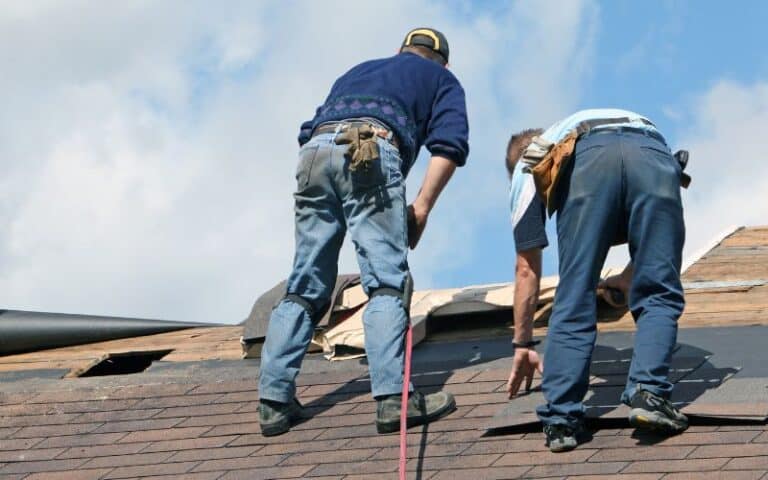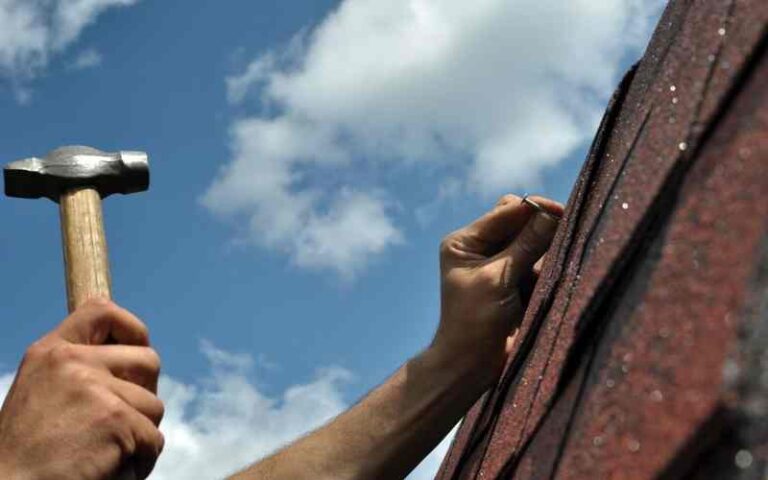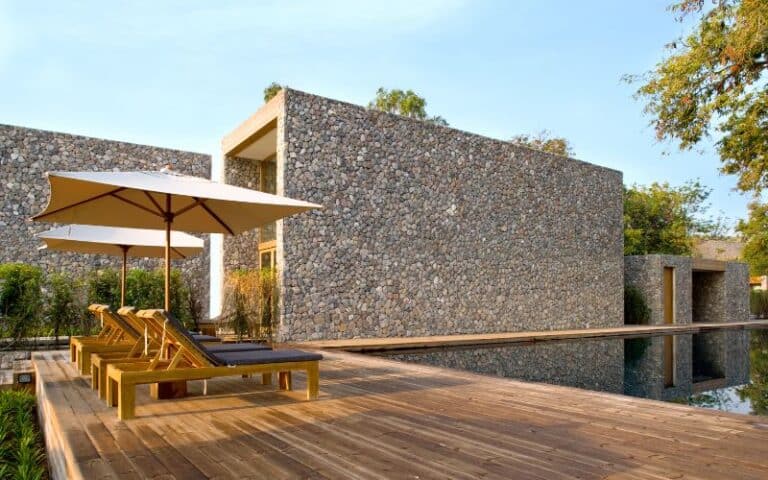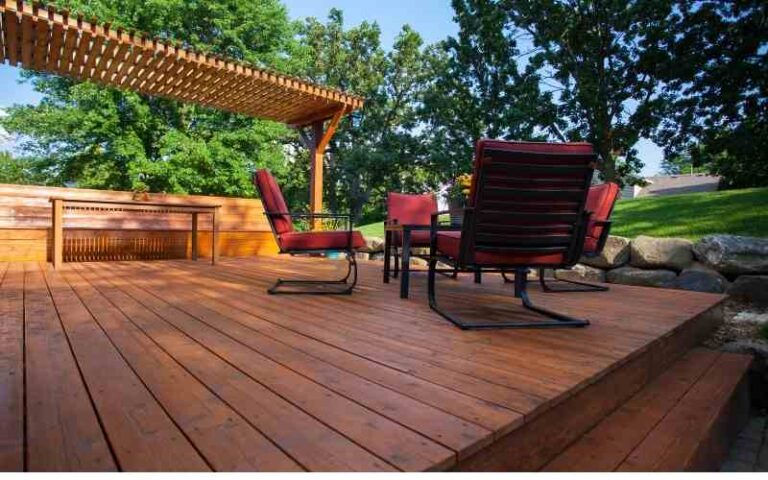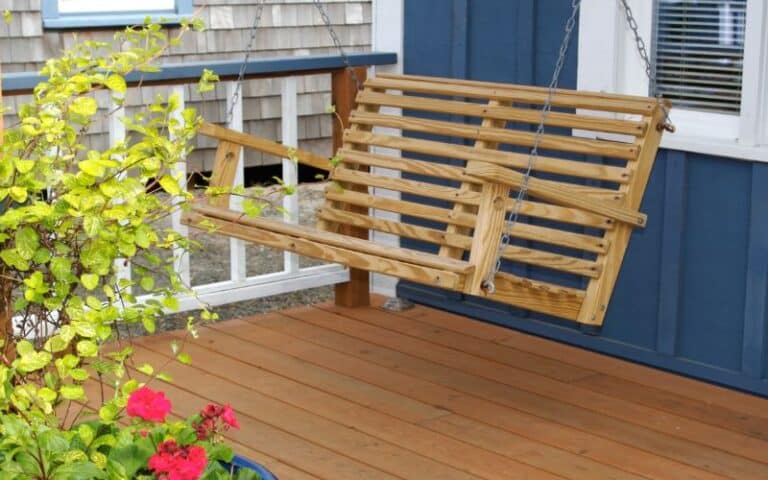Butcher block serves as a helpful work surface in homes. Thus, due to what butcher block is made of, it’s essential to learn how to maintain it to ensure that it lasts for a long time.
And this brings up this question; can butcher blocks get wet? In this article, find out if it’s ideal for your butcher block to get wet.
Butcher block is made of wood, and it isn’t waterproof. Hence, allowing your butcher block to get wet is not ideal as it can damage over time. Unfortunately, you can’t prevent your butcher block from getting wet, especially if you’re the type that prefers doing most of your work in the kitchen; that’s why you must follow some essential precautions.
Ready for a Roofing Quiz?
Does a Butcher Block Get Wet?
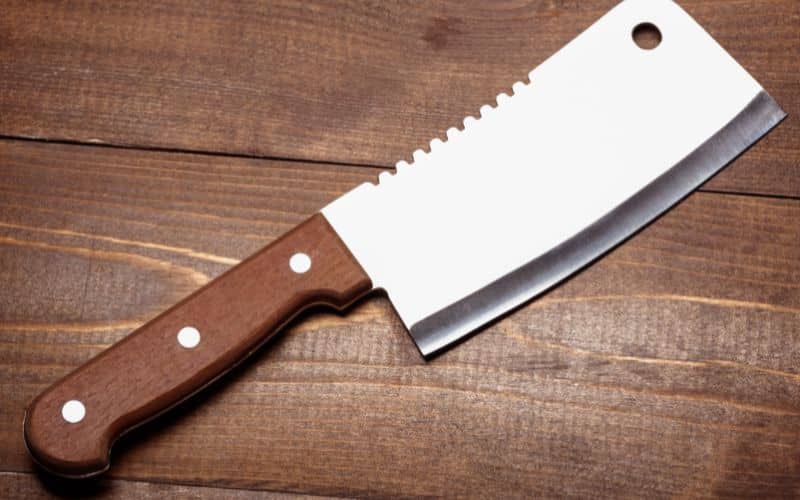
The truth is, as helpful as butcher blocks are, they are challenging to maintain. Butcher blocks are made from pieces of wood bonded together and are highly susceptible to water damage.
For instance, some use the butcher block in their kitchen as a work surface; hence, such a butcher block can’t be prevented from getting wet.
Likewise, the butcher blocks you placed in the bathroom, laundry room, office, etc.
Regardless of the moisture that spills over your butcher block, there shouldn’t be a problem to worry about as long as you clean it up immediately after you’re done with your work.
Meanwhile, failing to clean up the moisture immediately can cause mold to appear and grow on your butcher block, eventually damaging it.
Therefore, you should be incredibly intentional about maintaining your butcher block if you want it to last for a long time.
Don’t allow any moisture to stay for so long on your butcher block; this is advisable to prevent avoidable damage.
How Do You Protect a Butcher Block from Water Damage?
Butcher blocks are sturdy and reliable. However, they require optimum maintenance and care.
Water is one of the main things that cause your butcher block to be damaged quickly. And, of course, you can prevent this from happening.
Therefore, below are some ways to protect your butcher block from water damage.
- It would help if you were extra careful when working around your butcher block. Indeed, you can’t prevent your butcher block from getting wet.
- Nevertheless, you can still protect it from water damage by cleaning up any moisture on it immediately after using it.
- The cost of repairing the butcher block is high. So, consider maintenance routines for your butcher block countertop, such as coating, oiling, and refinishing.
- In short, consider waterproofing your butcher block to extend its shelf life.
- In addition, your butcher block’s surface may seem strong.
- But if you use sharp objects on it frequently, such as a knife, you may puncture the surface, eventually leading to mold growth.
- Also, instead of working directly on your butcher block, you can get a cutting board and place it over the countertop.
- This action will limit the amount of water spilled on your butcher block and aids a lot in preventing water damage.
How Do You Waterproof Butcher Blocks?
Waterproofing is one of the best ways to protect your butcher blocks from water damage as it prevents moisture from penetrating the surface of your butcher block.
There are two main ways of waterproofing your butcher block, and they go as follows:
- Using oil coatings
- Applying polyurethane coating
#1. Using Oil Coatings
Oil finishes are excellent waterproof substances in butcher blocks, also known as penetrating coatings.
Oil finishes generally have two categories which include evaporating oils and polarizing oils.
Examples of evaporating oils are mineral, coconut, walnut, etc. While polymerizing oils include grape seeds oil, tung oil, etc.
Oil finishes are non-toxic, add more beauty to your butcher blocks, their application is straightforward, and doesn’t require you to have any particular skill.
However, there’s a slight difference between the method of applying polymerizing oils and the application of evaporating oils.
#1. How to Apply Polymerizing Oils to Your Butcher Block
Kindly follow the instructions below to apply polymerizing oils to your butcher block.
- Get a soft and lint-free cloth and use it to apply a coat of any polymerizing oil on your butcher block. Ensure that the oil circulates the entire surface of your butcher block.
- Leave the oil on the butcher block for 15-20 minutes.
- Then, smoothen the entire surface with a soft brush.
- Let the coated butcher block be for 24 hours.
- And after 24 hours, repeat the whole coating process two more times.
#2. How to Apply Evaporating Oils on Your Butcher Block
Below are step-by-step instructions for applying evaporating oils on your butcher block.
- Using a soft and lint-free cloth, apply coats of any evaporating oil to the surface of your butcher block.
- Continue to apply the coats of oil every day for a week.
- Once it reaches a week, limit the application to a coat a week for a month.
- Then, limit the application to two times a year.
One thing about oil finishes being waterproof is that they require regular maintenance to ensure optimum effectiveness.
#2. Applying Polyurethane Coating
Another way of waterproofing your butcher block is by applying a polyurethane coating. Therefore, follow the steps below to apply polyurethane to your butcher block.
- Sand your butcher block until it’s clean.
- Get rid of any dirt from the butcher block’s surface.
- Then, apply a natural stain to the cleaned butcher block.
- Furthermore, apply a thick coat of polyurethane that dries into a plastic film over the natural stain.
- Wait till the first coat dries totally. Then, you should follow it by applying another coat of polyurethane.
You may want to know which is better for waterproofing between oil coatings and polyurethane.
Check out the table below to learn more about the pros and cons of both oil and polyurethane coatings.
| Oil Coatings | Polyurethane Coating |
|---|---|
| They are also known as penetrating coatings | It’s also known as a topical coating |
| Oil coatings are non-toxic, i.e., they are food-safe | It’s made up of a chemical mixture, so it’s not ideal for placing edible things |
| You don’t need any cutting board before working on a butcher block. | Getting a cutting board is advisable. |
| It will be more effective if you place it in an area free from excess water. | You can place it in an area with excess or little water. |
| An oil-coated butcher block requires regular finishing | A polyurethane-coated butcher block doesn’t require frequent finishing |
| Oil coatings also last long but less than polyurethane coatings. | Polyurethane coating is more lasting than oil coatings. |
Should Butcher Block Countertops Be Sealed?
Yes, it’s necessary to seal butcher block countertops. However, sealing your butcher block may be optional in some situations.
If you’re sure you won’t place eatable things or cut foods on your butcher block, you may not need to seal it.
Moreover, if you know that you will place your butcher block in an area where it’s free from moisture, you may not need to seal it.
Butcher blocks may seem sturdy, but the truth is they can easily get damaged if you fail to give them optimum care and maintenance.
Therefore, there are two significant reasons why you should seal your butcher block, and they go as follows:
- The first reason why you should seal your butcher block is to keep it away from staining. Butcher blocks get stained if you don’t seal them.
- For instance, red wine can spill on your butcher block, leaving behind stains and discolorations on the countertop’s surface.
- Secondly, to prevent your butcher block from water damage. Butcher blocks are made of wood; therefore, they’re porous.
- However, they become water-repellent if you seal them properly.
It’s important to note that if your butcher block is damaged, repairing it or getting a replacement is costly.
Hence, it would be best to seal your butcher block to ensure you enjoy using it for a long time.
Is It Safe to Have a Shed on Skids If It Will Get Wet?
Having a 12×20 shed on skids may not be the safest option if it will frequently get wet. Skids elevate the shed, but they do not provide proper protection against moisture. It would be advisable to consider other foundation options, such as concrete or gravel, to ensure the longevity and safety of the shed in wet conditions.
Why Do You Have to Seal Butcher Block Within 48 Hours?
If an instruction from the manufacturer of your butcher block asks you to seal the butcher block within 48 hours, and you’re curious to know the reason, then this is for you.
They ask you to seal your butcher block within 48 hours because they don’t want it to absorb atmospheric moisture.
This is advisable because the wood is dried just before being shrink-wrapped.
Unfinished woods try to adapt to their environment, which is why your butcher block will absorb water from the atmosphere if you don’t seal it.
Meanwhile, if the butcher block absorbs water, it swells, loses shape, and can eventually crack if care is not taken.
Conclusion
Apart from adding warmth wherever you place it, butcher block also has several advantages. However, as strong as a butcher block is, it requires routine maintenance and optimum care.
Therefore, to make it durable and to prevent your butcher block from damaging, it’s important to waterproof it with appropriate sealant.

